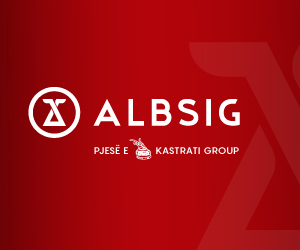Head of the High Court, Sokol Sadushi summarized this Friday the achievements for 2023, emphasizing that the number of backlog cases has been decreasing.
In a media conference, Sadushi underlined that after examining the backlog cases accumulated throughout 2018-2019, there will be no cases that exceed reasonable trial terms.
Speaking about the challenges, head of the High Court said that they accept any criticism, which comes from the public opinion and the media, while he promised that the process of reviewing the backlog files will proceed quickly and professionally.
“Very soon you will find that after we have completed the review of the cases belonging to the years 2017-2018, as the years with the highest number of registered cases, there will be no cases that exceed the reasonable trial terms. It is enough to refer to the number of decisions given from 2020, to be confident that for a period of almost two years, the backlog of 24,000 cases will be considered a reminiscence of the past.
During this year, 1,846 new cases were registered, and according to international standards, the number of court decisions should have been the same, while 7,848 decisions were given, that is, 4 times more than the yield rate per judge. Referring to these data, each judge held for this year a workload of nearly 440 decisions per year (a record number), while historically, in its best year and with more legal advisors, the Supreme Court reviewed on average no more than 250 cases per year per judge. These are data that testify to the high responsibility of the judiciary to face, but also to get out of this situation.
You will soon find that once we have completed the review of cases pertaining to 2017-2018, as the years with the highest number of cases recorded, there will be no cases exceeding reasonable trial times. It is enough to refer to the number of decisions given from 2020, to be confident that for a period of almost two years, the backlog of 24,000 cases will be considered a reminiscence of the past.
Effectiveness is a good indicator of the performance of judges and the tendency for a reduction of the backlog, but the rush order after increasing the number of decisions is not an end in itself. Beyond the quantity of cases, judges remain particularly focused on the quality of decision-making. In this direction, we are oriented to the increase of decisions for unity, the development and change of judicial practice. During the year 2023, the procedure for 13 unitary decisions has started (4 from the Criminal College, 2 from the Civil College and 7 from the Administrative College), while some of them have been announced and the others are in the process of reasoning. Professionally well-structured decisions, through which judicial practice is developed and unified, make the judgment much more efficient and stable in the decision-making of the lower courts, guaranteeing legal stability and certainty in the resolution of disputes. This is and will remain our priority.
During the year 2023, in addition to examining cases according to the chronological criterion, a priority scheme was also followed, which includes special recourses, suspended cases, family and property cases, personal security measures, extradition decisions, etc., without avoiding emergency cases and with fast trial terms, in particular those belonging to the most vulnerable layers of society, especially pensioners, or those unfairly dismissed from work.
Waiver of recourse by public institutions has continued this year, a phenomenon that has also been noticed by individuals. There are 468 requests for waiver of recourse, of which 384 belong to public institutions and 84 to individuals, divided into: 261 in the administrative field, 177 in civil and 30 in criminal. This trend needs to be accompanied by the non-presentation of new recourses, which obviously turn out to be unfounded.
I have always identified as a worrying problem the high number of recourses, which fail to pass the acceptability test. Divided by fields, for the year 2023, 36% of recourses in the Civil College, 70% in the Administrative College and 70% in the Criminal College do not pass this test. But if we look at the relationship between individuals/private legal entities, on the one hand, and public bodies, on the other hand, unacceptable recourses in the administrative and civil fields belong more to public bodies. For this year, public bodies lost 70% of administrative cases (1,441 cases) and 73% of civil cases (701 cases). Private individuals/legal entities lose in 30% of administrative cases (629 cases) and 27% of civil cases (263 cases). This ratio is different in the criminal field, where the prosecution loses in 33% of cases (521 cases), while individuals lose in 67% of them (1039 cases)”, he emphasized. /abcnews.al














